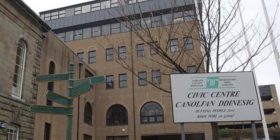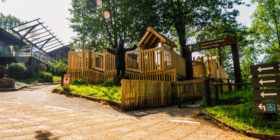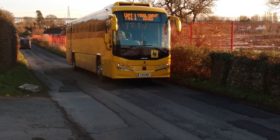Latest Phase Of Welsh Seabirds Count Completed
The latest phase of the massive effort to count all seabirds along the Welsh coast has just been completed.
Over the last month, Natural Resources Wales’s (NRW) counts focused on the Anglesey coast and Llyn peninsula.
The seabirds count started last year. It will be completed next year when the last pieces in the jigsaw are filled with seabird counts in South Wales.
The information will feed into the latest census of Britain and Ireland’s breeding seabirds – a programme that started 45 years ago to identify long-term trends in seabird populations.
Having accurate evidence means that NRW can provide the best possible advice on the marine environment and issues that could affect it.
Matty Murphy, NRW’s Senior Maritime Ornithologist said: “Protecting wildlife is fundamental to our aims as an organisation.
“Gathering this information is really important to assess long-term trends in our seabirds and the biodiversity they rely on.
“Already this year we’ve recorded local changes including the disappearance of a colony of 500 kittiwakes on the east coast of Anglesey, and a doubling of guillemots from 2,500 to 5,000 on Middle Mouse, an island off north Anglesey.”
Since 2000, auk species have increased, with guillemot, razorbill and puffin increasing by 69 percent, 80 percent and 62 percent respectively.
However, some of Wales’ most iconic species of seabird have declined: shag by 24 percent, fulmar by 16 percent, lesser black-backed gull by 35 percent and kittiwake by 41 percent.
This census work is being done more efficiently these days, using NRW’s survey boat ‘Pedryn’, which allows monitoring staff to cover a lot of the coast in one day and react quickly to changes in the weather.
Over the years, the programme has also relied on the help of volunteers including staff from RSPB Cymru and local authorities.
The seabird data covering Britain and Ireland, collected by various organisations and groups, are collated by the UK’s Joint Nature Conservation Committee and are available on their Seabird Monitoring Programme database.
The first census, Operation Seafarer, took place in 1969 to 1970, the second The Seabird Colony Register in 1985 to 1988, whilst Seabird 2000 was carried out between 1998 and 2000. The current Seabirds Count started last year and will be completed next year.
Spotted something? Got a story? Email News@News.Wales








